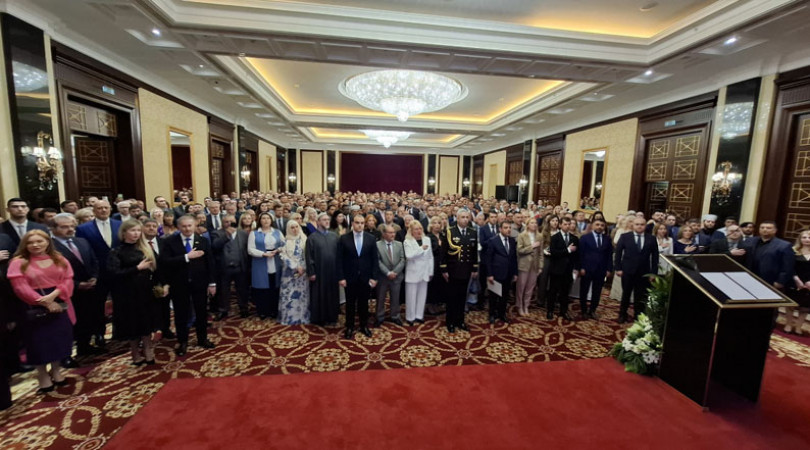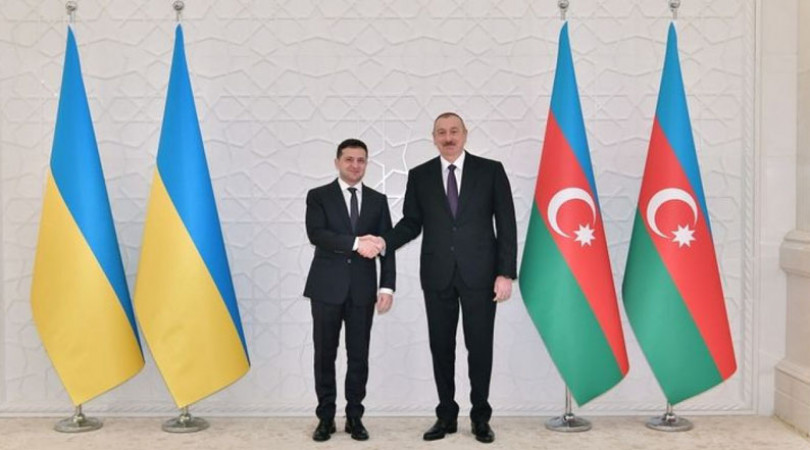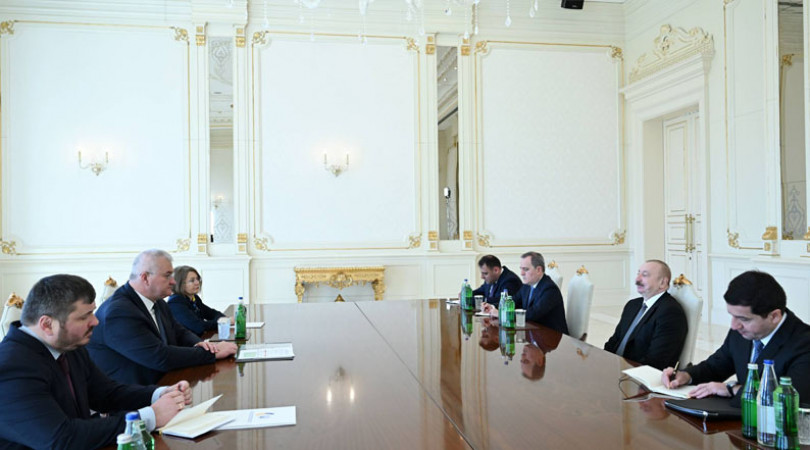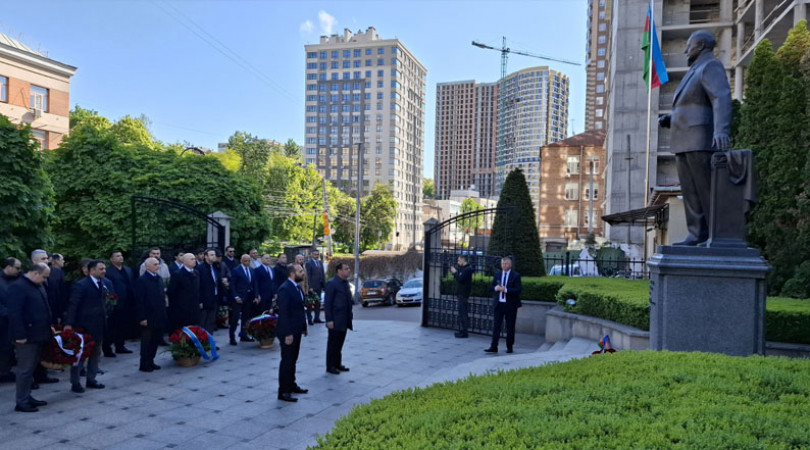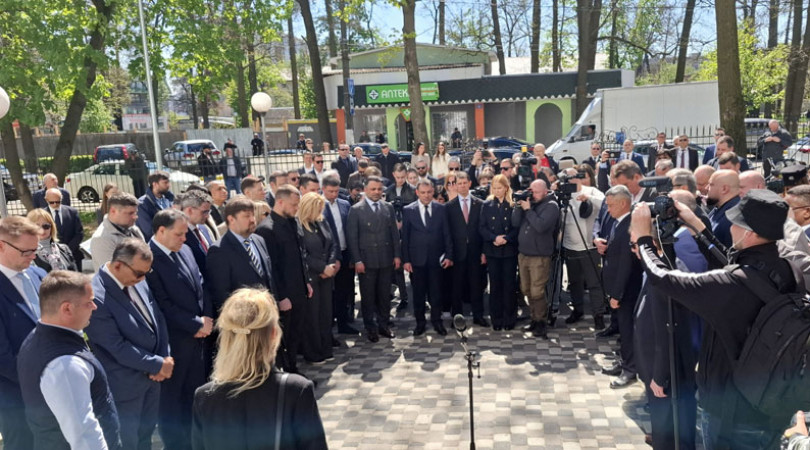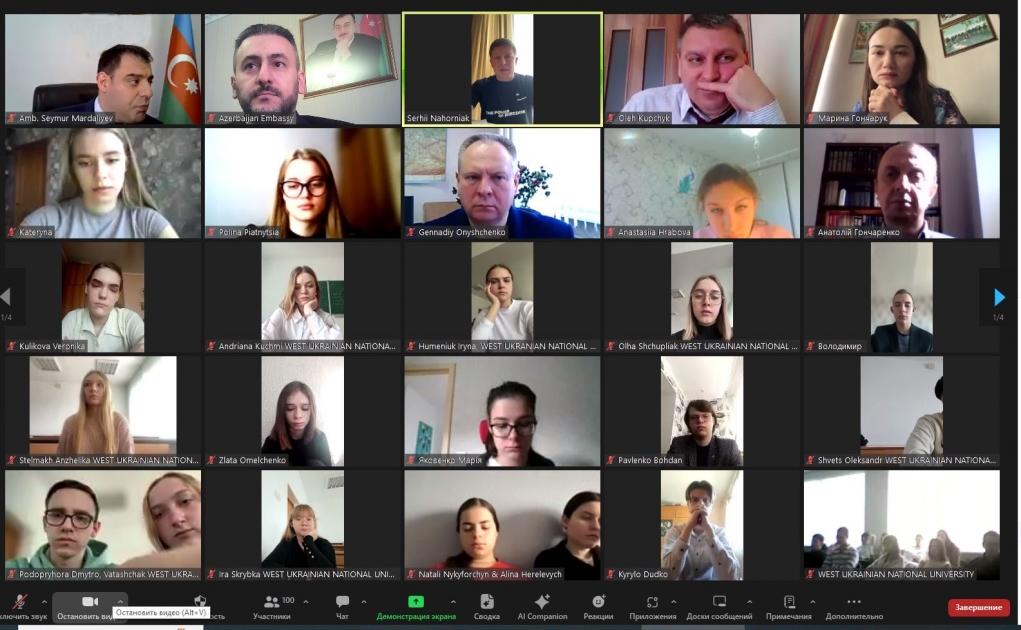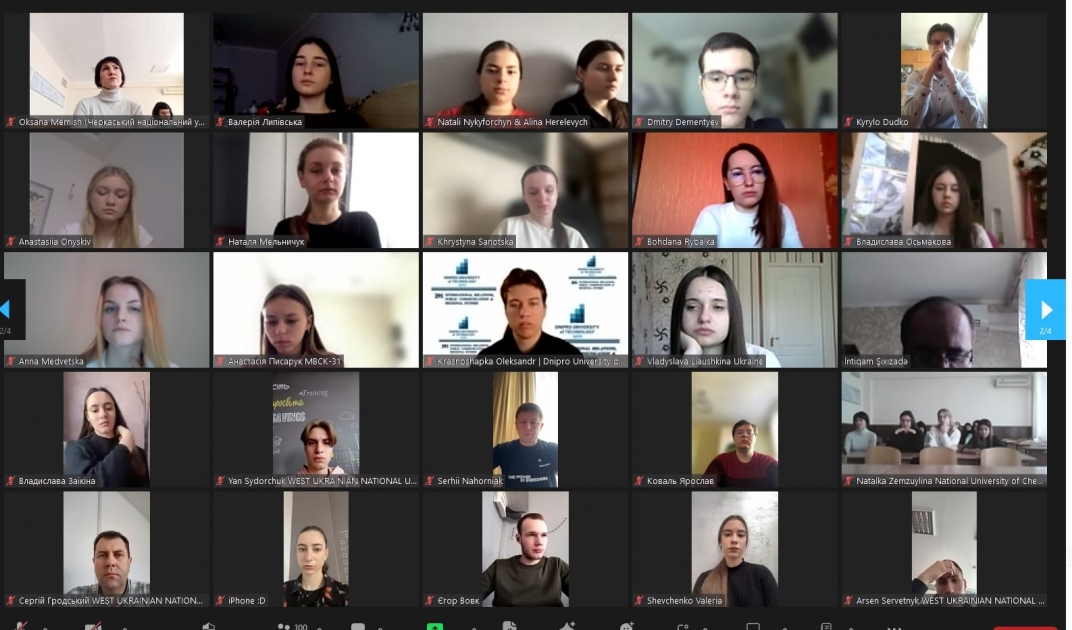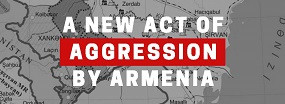All-Ukrainian online conference was held to mark the 32nd anniversary of the Khojaly Genocide
All-Ukrainian online conference on the topic "The Khojaly tragedy is a tragedy for all humanity" held on February 28, 2024.
As AZERTAJ reports, more than 100 teachers and students from different cities of Ukraine took part in the online conference dedicated to the 32nd anniversary of the Khojaly Genocide, jointly organized by the Embassy of Azerbaijan in Ukraine and the Ukrainian-Turkish Center.
Moderator of the conference, the curator of Ukrainian-Turkish projects, Maryna Honcharuk, spoke about the importance of such events from the point of view of recognition of the Khojaly Genocide in the world community. Then she presented slides about the Khojaly Genocide.
Saying that there are similar bloody pages in the history of Azerbaijan and Ukraine, Ambassador Seymur Mardaliyev noted that this is one of the most serious crimes committed against the civilian population during the decades of aggression of Armenia against our country. One of the most tragic pages in the history of the country was the genocide of Khojaly inhabitants, where more than 7,000 people lived before the conflict. As part of the occupation policy of Armenia before the Khojaly Genocide, mass murders of the Azerbaijani population were committed in such settlements as Baganis-Ayrim, Meshali, Karkijahan, Malibeyli and Garadaghly.
"All the available facts of the tragic events in Khojaly convincingly prove that the crimes committed in this city were not an ordinary and random act, but part of the systematic policy of violence in Armenia. Unfortunately, due to double standards, the world community does not want to call what happened in Khojaly a genocide. If the Khojaly Genocide had been properly assessed in time, perhaps massacres would not have occurred in other regions of the world in subsequent years. Impunity always leads to new massacres," the ambassador emphasized.
Reminding that Khojaly was liberated as a result of last year's anti-terrorist measures, the diplomat noted that Azerbaijan is committed to the peace process with Armenia. He also mentioned, that for reconciliation between Azerbaijan and Armenia, first of all, it is necessary to establish justice, including for the victims of the Khojaly genocide. Armenia must accept and apologize for the committed genocide in order to erase this black stain.
Member of Ukrainian Parliament Serhiy Nagornyak noted that the Ukrainian people share the grief of the Azerbaijani people and honor the memory of the victims of the Khojaly tragedy. The perpetrators of this barbaric crime demonstrated their anti-human and terrorist qualities by occupying foreign lands. The civilized world has no right to forget the Khojaly tragedy. International law does not allow cases of impunity for criminals, as this greatly expands the scope of crimes. "Unfortunately, the world community has turned a blind eye to the occupation of Azerbaijani territories by Armenia, expulsion of Azerbaijanis from their lands, mass murders and terrible crimes committed against the civilian population and defenseless people," added S. Nagornyak. He emphasized that if the armed people who committed this crime had been punished in time, it might have been possible to prevent such atrocities.
Lithuanian journalist Richardas Lapaitis, a witness of the Khojaly genocide, emphasized that Armenian soldiers entered villages like thieves and committed genocide. "They killed innocent people. I can confirm my word in any international court," said Richardas Lapaitis. He noted that the Khojaly genocide can be compared with the most terrible crimes against humanity in the world in terms of its scale, ruthlessness and cruelty of those who committed this terrible crime. All responsibility for the tragedy lies with Armenia, and those who committed this crime must answer before the international court.
Oleg Kupchik, associate professor of Kyiv National University Taras Shevchenko, Anatoliy Goncharenko, associate professor of Sumy State University, candidate of historical sciences, Gennadiy Onishchenko, associate professor of Dnipro National Technical University, candidate of philological sciences, shared their opinions on the Khojaly Genocide.
Emil Huseynli
AZERTAJ special correspondent
Kyiv

